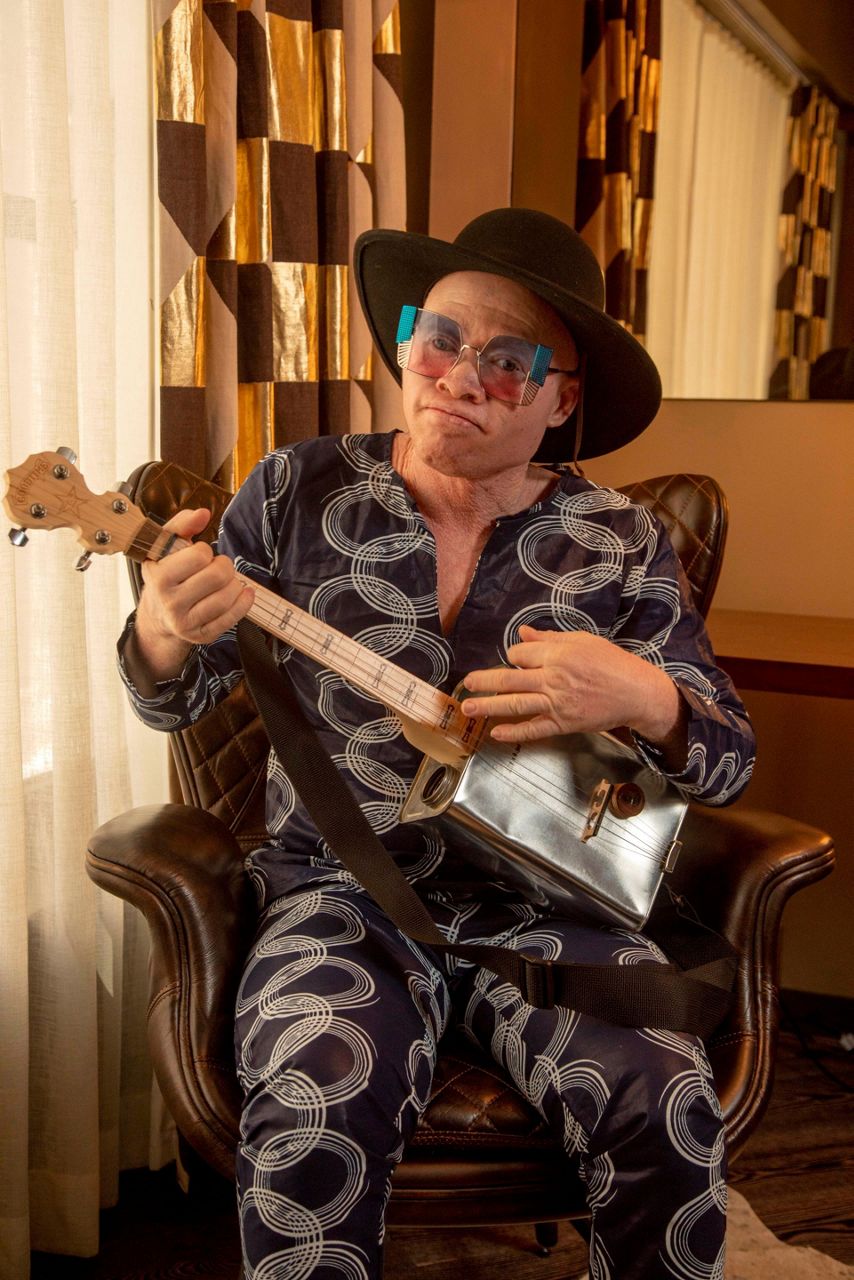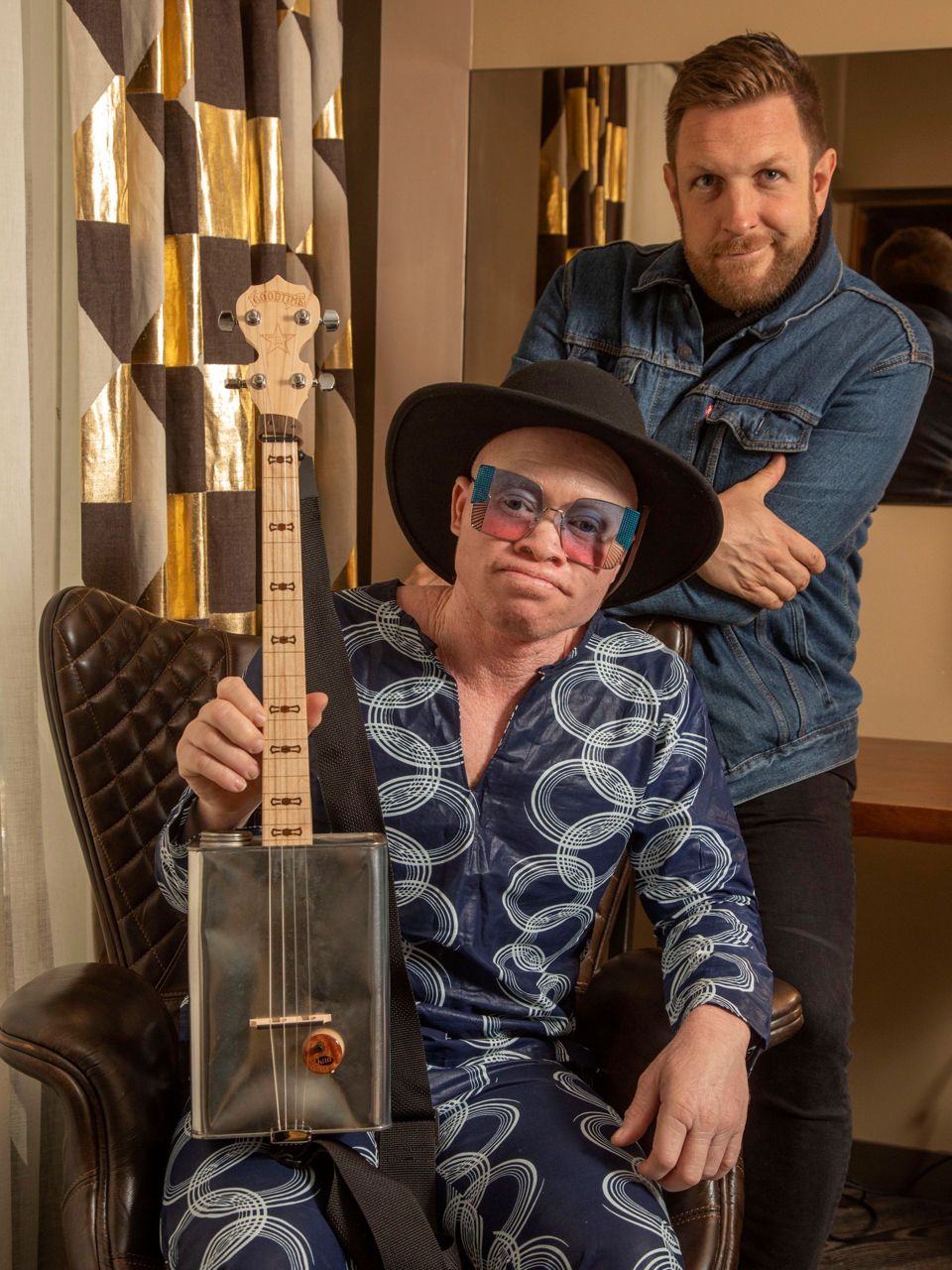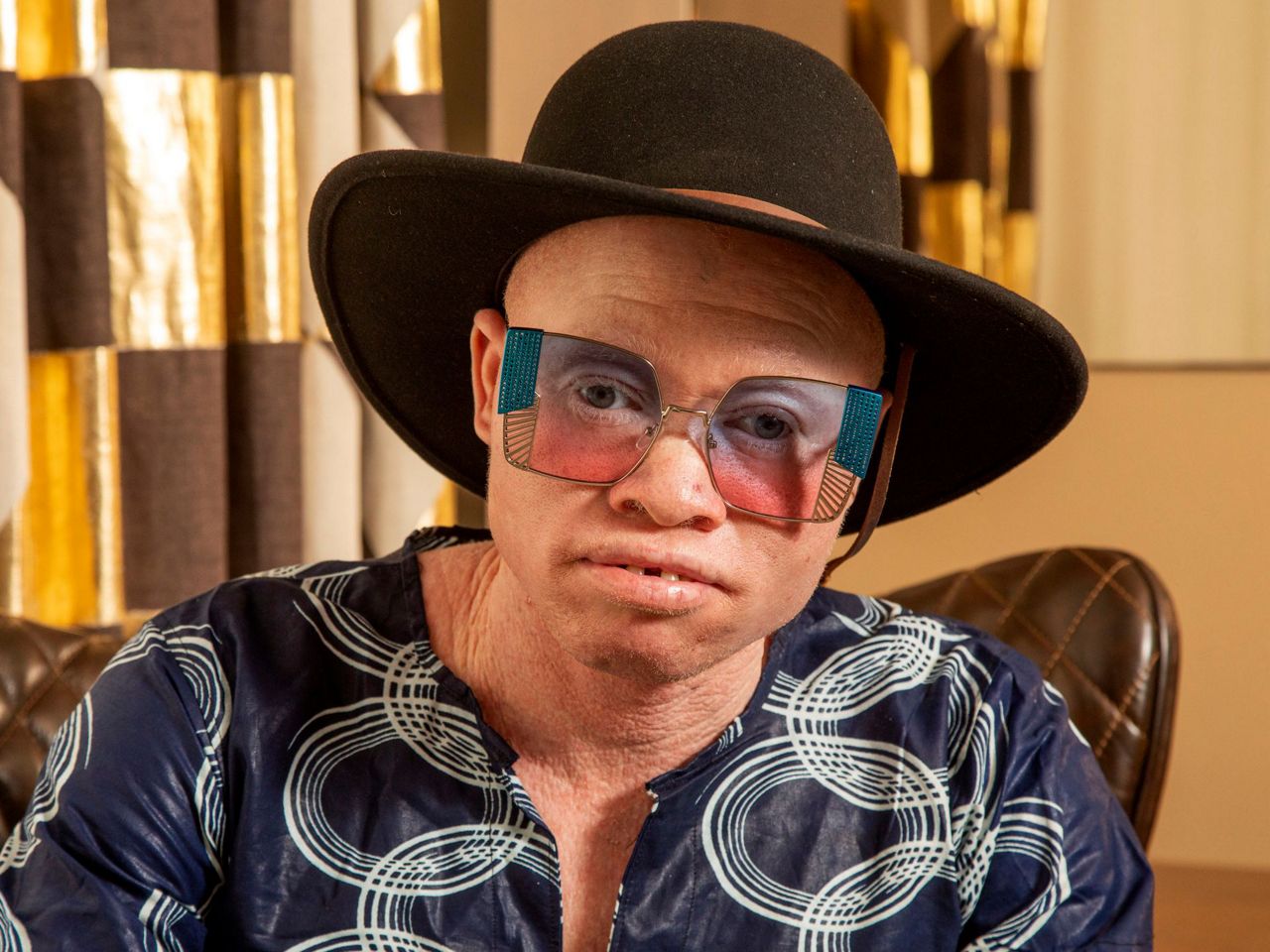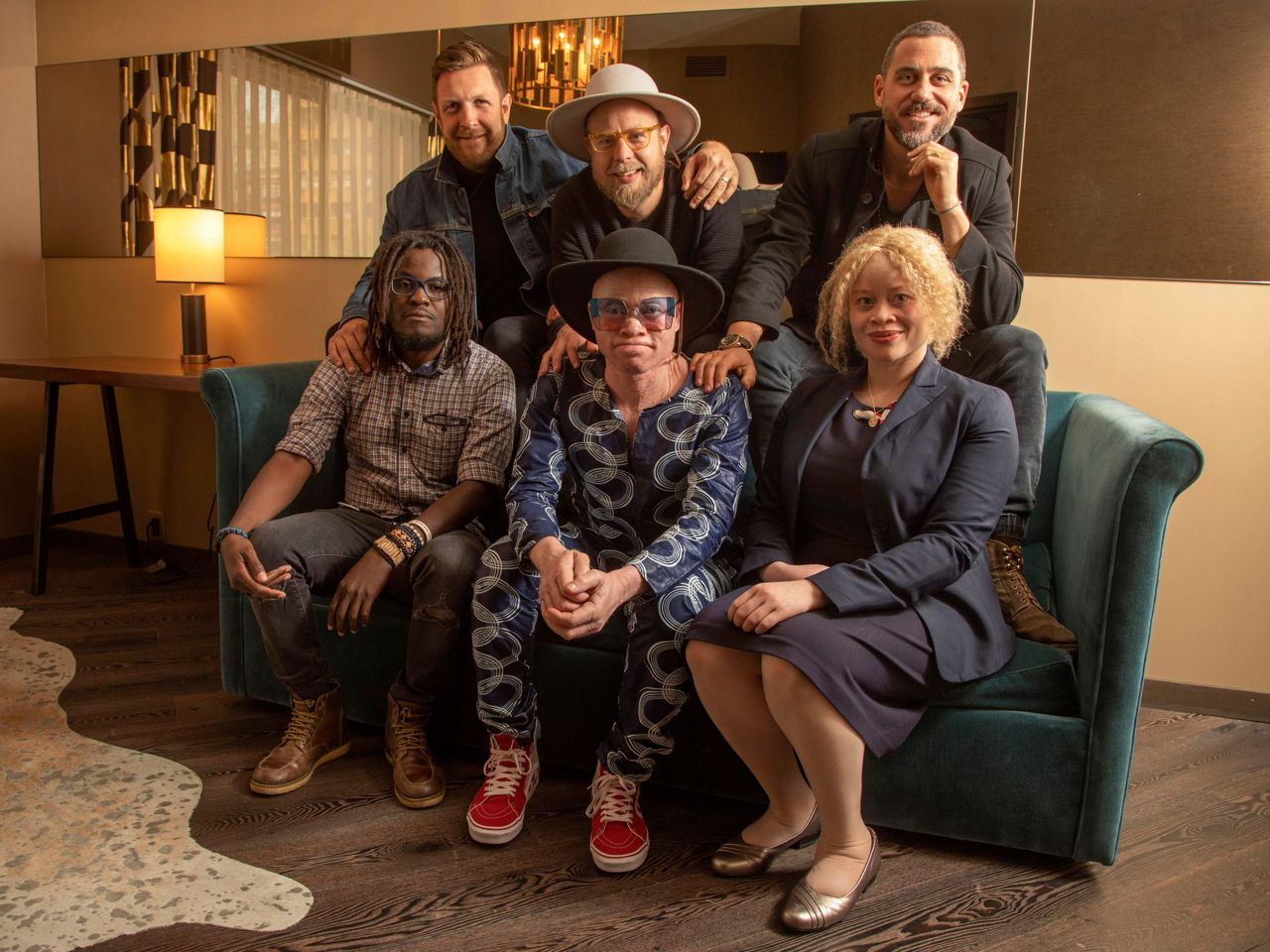NEW YORK (AP) — Lazarus Chigwandali, a Malawian street musician with albinism, was once lured into a car.
He was kidnapped, and the plan was to cut up his body and sell his parts to witch doctors, who would use them in potions thought to bring good luck.
It sounds surreal — but it is the reality that people with albinism face in parts of Africa. And though Chigwandali was one of the lucky ones to get away, others — including children seen as easy targets — have died after being captured and sold to witch doctors and on the black market.
Chigwandal's life story is the center of "Lazarus," the new short documentary playing at the Tribeca Film Festival in New York.
"The thing that's so shocking to me is that so few people know this is going on. I talk to people that are very cultured and they're news junkies and they don't realize that there is this crisis facing people with albinism," said director David Darg, an Oscar nominee and Emmy winner. "Really, it's an untold genocide that's going on. The United Nations have said themselves that persons with albinism face extinction if nothing's done about it."
Chigwandali's escape from his hard life has been music. He started singing when he was 10 and finds joy and happiness in bringing his community together through his gift.
His smile brightens up the mood around him and gives the film an uplifting, optimistic feel. This week in New York, he gained a new fan in Oscar-winner Leonardo DiCaprio, playing a private show for the actor and his friends.
Madonna was so moved by Chigwandal's story that she signed on as an executive producer of the 30-minute film.
"I'm so happy to have met Lazarus and to be a part of helping to raise awareness of the tragic reality that people with albinism have had to face for so long," said Madonna, who has adopted four children from Malawi and launched her Raising Malawi foundation in 2006.
On this day, Chigwandali is sporting large blue and pink glasses — in the vein of Elton John — an African-printed, two-piece navy ensemble and bright red sneakers. He's holding his canjo — a banjo made with an oil can — which he'll casually break out into song with.
Speaking through an interpreter, he says he hopes to be a voice for people like him.
"People who he doesn't even know," interpreter Clem Kwizombe said, will be helped "once they see his story."
"He also confided in me last night," Kwizombe continued, "that was his very first time to see people loving him like that in his entire life. ...That's why he just stood up and started dancing — because he was happy."
Chigwandali, who has music available for streaming on Spotify and Apple Music, plans to release an album later this year — in hopes of unifying the world through his songs, but also to help tell the story of people with albinism on a larger platform. He is working with music producer Johan Hugo, who has worked with Mumford & Sons and others.
But Chigwandali still fears for his life — and his children's lives. There is a Kickstarter campaign to raise money to build a house for Chigwandali and his family — designed so that no one can break in and ensure that his family is safe.
Even while they were filming "Lazarus" in Malawi, the director said abductions occurred, as did attempted abductions.
"That just really highlighted to us that this isn't a one-off thing. This is an ongoing crisis. We're in the midst of it right now in 2019," Darg said.
Darg explained that's why it's especially important to help Chigwandali become a household name.
"The real goal of the film, the album, the whole project collectively is to elevate Lazarus' prominence in Malawi as a superstar. If we can normalize a person with albinism to be in the spotlight, it'll help to dispel a lot of the mythology," Darg said.
Ikponwosa Ero, the United Nations independent expert on albinism, said it's vital that not only activists tell the story of people with albinism, but that artists do, too.
"Now it's being told from the view of artists and of filmmakers and musicians — these are crucial voices that are nontraditional in terms of human rights. They tend to be more effective than we traditional folk. We have the facts, we have the policy. They get the hearts of people," Ero said.
"I think it's important that the story be told from a different angle. We've been telling it so long and people are getting jaded, I think. It's good to have this point of view to touch people's hearts."
____
Online:
https://www.lazarus-malawi.com/
https://www.tribecafilm.com/filmguide/lazarus-2019
https://www.kickstarter.com/projects/johanhugo/lazarus-an-album-a-film-a-movement
Copyright 2019 The Associated Press. All rights reserved. This material may not be published, broadcast, rewritten or redistributed.







